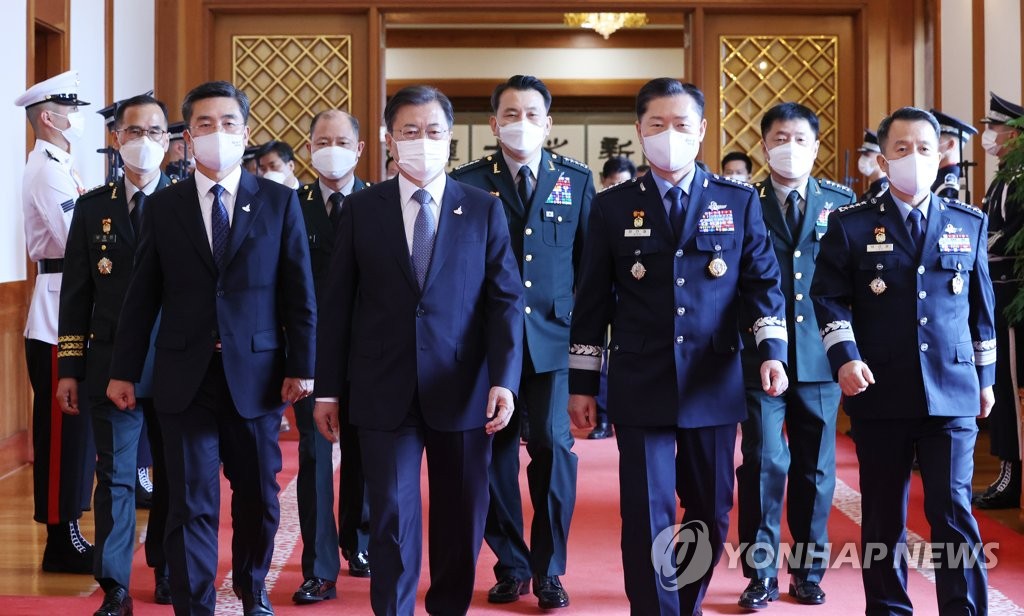- California Assembly OKs highest minimum wage in nation
- S. Korea unveils first graphic cigarette warnings
- US joins with South Korea, Japan in bid to deter North Korea
- LPGA golfer Chun In-gee finally back in action
- S. Korea won’t be top seed in final World Cup qualification round
- US men’s soccer misses 2nd straight Olympics
- US back on track in qualifying with 4-0 win over Guatemala
- High-intensity workout injuries spawn cottage industry
- CDC expands range of Zika mosquitoes into parts of Northeast
- Who knew? ‘The Walking Dead’ is helping families connect
Moon says military plays ‘safety pin’ role in tumultuous peace process
President Moon Jae-in said Wednesday South Korea’s military should continue to play a “safety pin” role, based on strong defense power, to prevent the recurrence of a war throughout the tumultuous peace journey.
He made the remarks while talking with newly promoted top military generals who attended an appointment ceremony at Cheong Wa Dae. They included Gen. Won In-choul, chairman of the Joint Chiefs of Staff, Army Chief of Staff Gen. Nam Yeong-shin, Air Force Chief of Staff Lee Seong-yong and Gen. Kim Seung-kyum, deputy commander of the South Korea-U.S. Combined Forces Command.
The president stressed that the military “should play the role of a safety pin” so that the peninsula won’t revert to a war, as there could be progress, regression, suspension or even an apparent dead end at times in peace efforts, according to Cheong Wa Dae spokesman Kang Min-seok.
“So far, our military has done the role well,” Moon was quoted as saying.

President Moon Jae-in (4th from L) walks toward a Cheong Wa Dae room along with Defense Minister Suh Wook (2nd from L) and newly promoted top military generals following an appointment ceremony at the presidential compound in Seoul on Sept. 23, 2020. (Yonhap)
He also presented a three-point key strategy for the nation’s armed forces — introducing new technologies and equipment for the fourth industrial revolution era, keeping the South Korea-U.S. alliance robust and regaining wartime operational control (OPCON) in respect of the alliance.
In his United Nations speech delivered remotely earlier on the day, Moon proposed declaring a formal end to the Korean War that ended in 1953 in an armistice, not a peace treaty, as a starting point for complete denuclearization and a permanent peace regime.
His repeated offer of the end-of-war-declaration was aimed at putting fresh vigor into the long-stalled Korea peace process, Cheong Wa Dae officials said.











